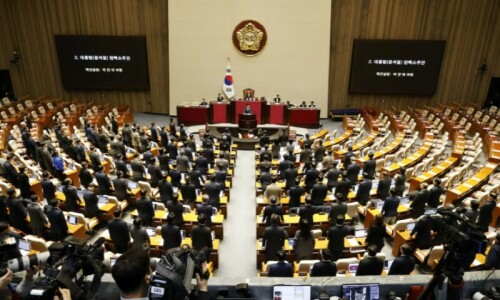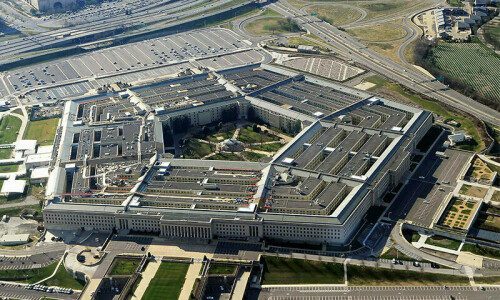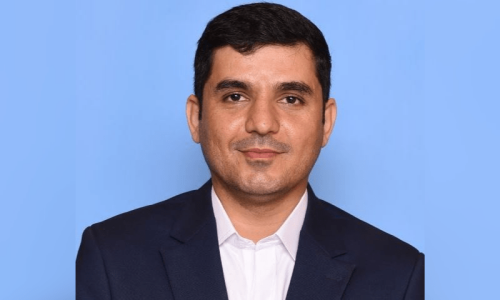South Korean President Yoon Suk Yeol has been banned from leaving the country over a failed attempt at imposing martial law, a justice ministry official said on Monday, amid growing calls for him to step down and a deepening leadership crisis.
Yoon has apologised for the botched attempt and said he was leaving his political and legal fate to his ruling People Power Party (PPP) but has not resigned. He has become the subject of criminal investigation, according to local media reports.
On Monday, the defence ministry said Yoon was still legally commander in chief, but his grip on power has come into question with dissent growing among senior military officers against the president, and his own party saying it would establish a task force to handle his eventual resignation.
Oh Dong-woon, the head of the Corruption Investigation Office for High-ranking Officials, said he has ordered a ban on foreign travel for Yoon, when asked at a parliament hearing what actions have been taken against the embattled president.
A justice ministry official, Bae Sang-up, told the committee the travel ban order has been executed.
The panel was established in 2021 to investigate high-ranking officials including the president and their family members but it does not have authority to prosecute the president. Instead, it is by law required to refer the matter to the prosecutors’ office.
While Yoon survived an impeachment vote in parliament on Saturday, his party’s decision to delegate presidential authority to the prime minister has plunged the key US ally into a constitutional crisis.
Yoon has refused calls, including some from within his own ruling party, to resign, and his future looked more uncertain over the weekend when Yonhap news agency reported he was under criminal investigation for alleged treason.
Prosecutors on Sunday arrested ex-defence minister Kim Yong-hyun over his alleged role in the declaration of martial law on December 3, Yonhap reported.
Yoon gave the military sweeping emergency powers on Dec 3 to root out what he called “anti-state forces” and obstructionist political opponents. He rescinded the order six hours later, after parliament defied military and police cordons to vote unanimously against the decree.
Amid the backlash, multiple military officials, including the acting defence minister, have said they would not follow any new order to impose martial law again.
The main opposition Democratic Party has called for Yoon to be stripped of authority to control the military. The DP has also demanded the arrest of Yoon and any military officials implicated in the martial law fiasco.
Yoon’s People Power Party (PPP) had established a task force to deal with, among other matters, “political stabilisation after martial law and (Yoon’s) orderly early resignation”, a spokesperson said on Monday.
On Sunday, PPP leader Han Dong-hoon said the president would be excluded from foreign and other state affairs, and Prime Minister Han Duck-soo would manage government affairs until Yoon eventually stepped aside.
That proposal has drawn criticism from the opposition, which says it is unconstitutional. It says Yoon must be impeached or resign and face legal prosecution, and plans to table another impeachment bill on Saturday.
Chang Young-soo, a professor at the School of Law at Korea University, said the president is able to delegate authority to the prime minister, especially his control of the military. However, there is debate about whether the prime minister has the authority to act as head of state on diplomatic matters.
“Also, unlike a US vice president, a South Korean prime minister is not elected, which means democratic legitimacy is weak. So it will also be an issue how long this system can go on,” he said.
Military backlash
Opposition leader Lee Jae-myung warned on Monday that the political crisis threatened to do irreversible harm to Asia’s fourth-largest economy, a major global supplier of memory chips.
South Korea’s finance ministry and regulators said they would make all-out efforts to stabilise financial markets by deploying contingency plans and boosting liquidity by the end of Dec.
In the latest sign of dissent within military ranks, the commander of South Korea’s special forces said he was ordered to send his troops into parliament last week to stop a vote to reject martial law.
Colonel Kim Hyun-tae, the commanding officer of the 707th Special Missions Group, told reporters he took responsibility for his troops’ actions but he was acting under orders from then defence minister Kim Yong-hyun.
“We were all victims who were used by the former defence minister,” the colonel told reporters outside the defence ministry in Seoul.
He said he had not told the military about his plan to speak to the media out of fear he might be stopped.
Yoon’s decision to declare emergency rule and grant the military sweeping powers stirred protests on the streets and raised alarm among Seoul’s allies.
US Defence Secretary Lloyd Austin scrapped plans to travel to South Korea and Secretary of State Antony Blinken called his South Korean counterpart, saying he expected the democratic process to prevail.
The United States has 28,500 troops stationed in South Korea as a legacy of the 1950-1953 Korean War.
The turmoil in Seoul comes at an important geopolitical moment in the region, with North Korea allegedly sending troops to help Russia’s war against Ukraine amid growing military ties between Moscow and Pyongyang.
South Korean foreign minister Cho Tae-yul said he “cannot but feel sad” that the incident occurred at a time of rising security threats faced by the country.














































Dear visitor, the comments section is undergoing an overhaul and will return soon.